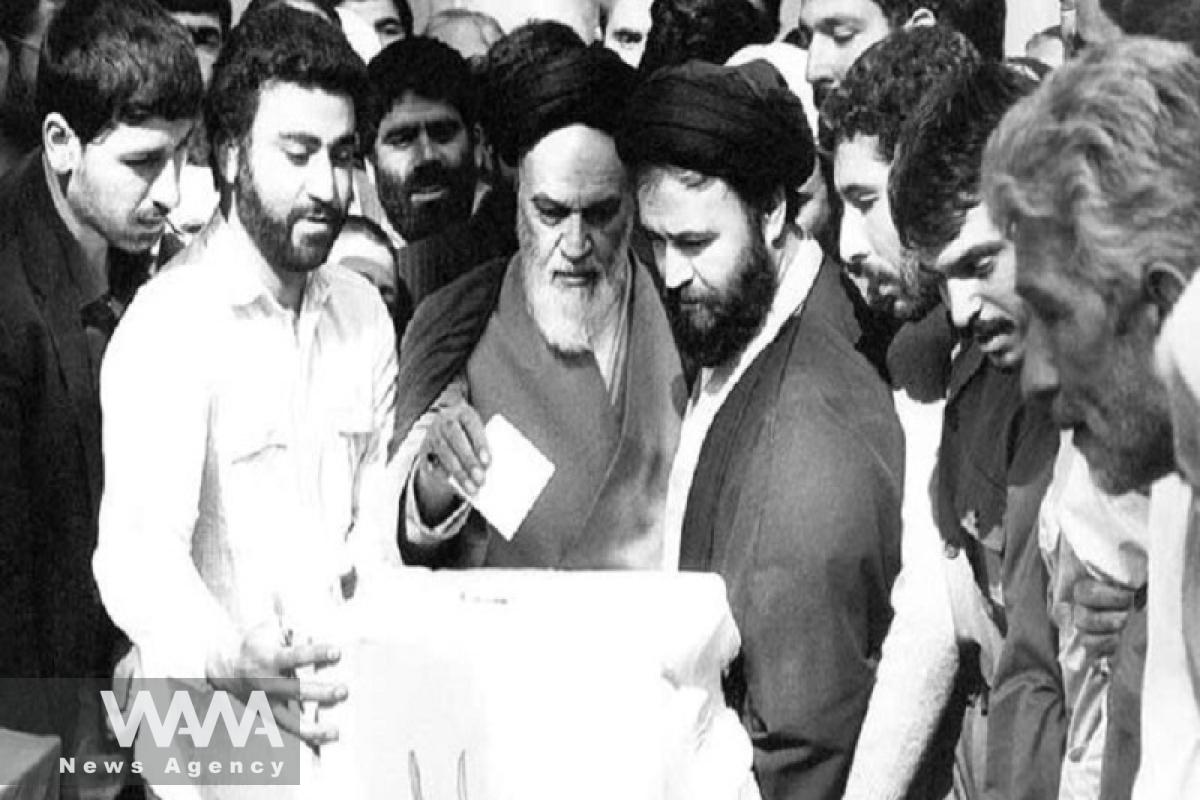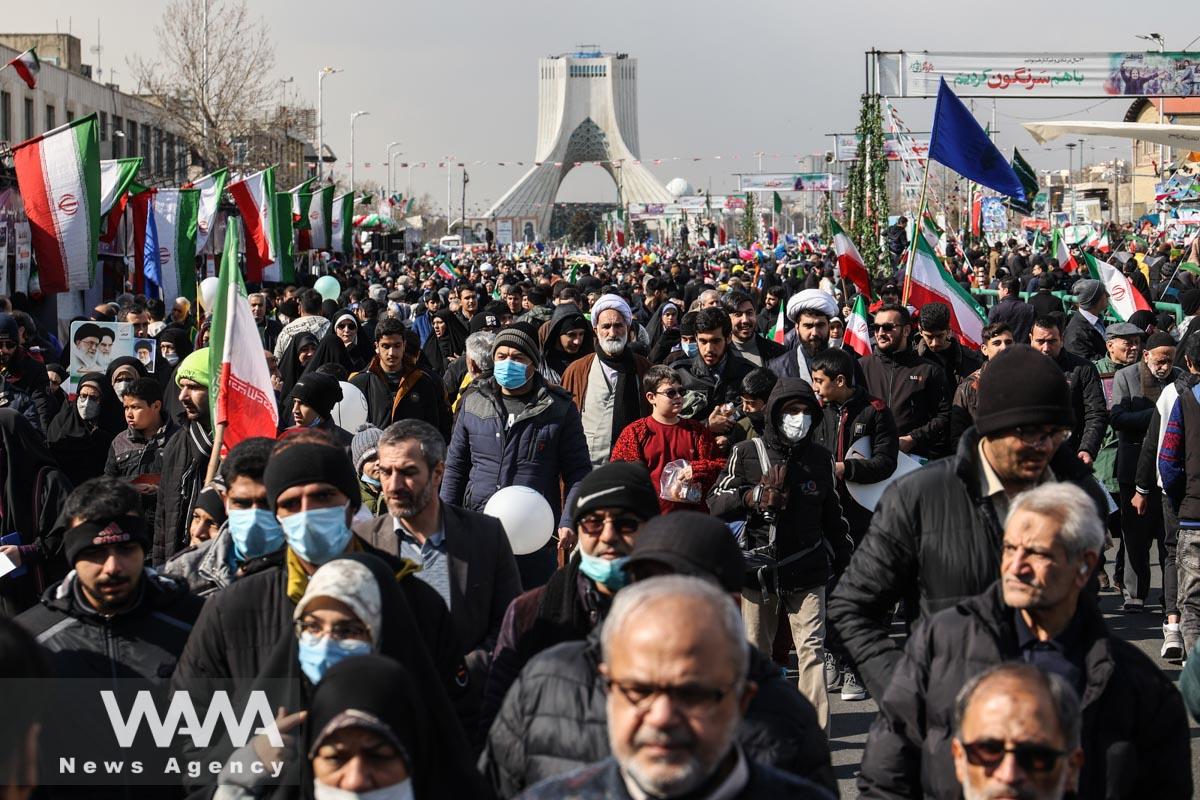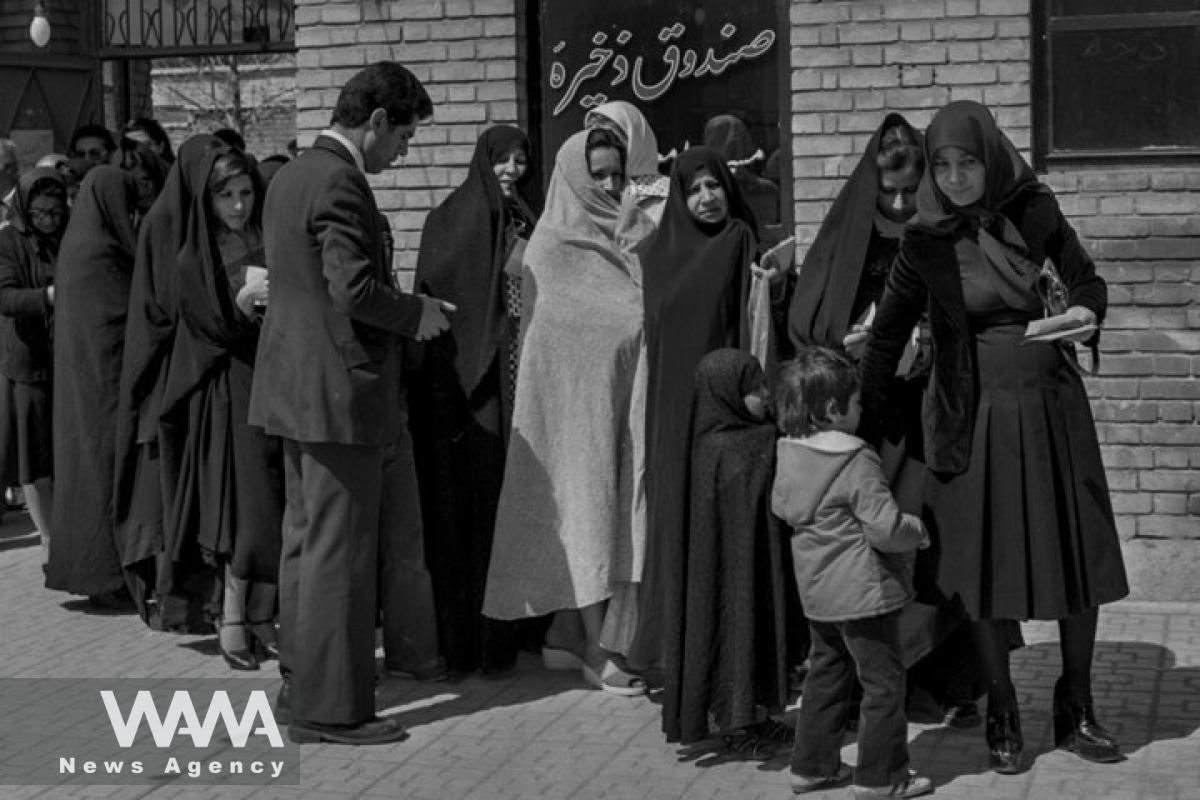A Historic Referendum That Shook the Middle East
WANA (Apr 01) – April 1st marks a pivotal moment in Iran’s history—a day when the Iranian nation, after centuries of monarchical rule, took its destiny into its own hands. This transformation did not occur through war or a coup but was born from the decisive vote of the people. The Islamic Republic, an unprecedented phenomenon in Iran’s history, emerged from the collective will of a people yearning for a different future.
With the fall of the Pahlavi regime on February 11, 1979, Iran found itself at a crossroads, facing an uncertain future with concerns over the nature of its next government. The proposal by Ayatollah Khomeini, Iran’s late leader, to hold a referendum was more than a political decision—it was a historic moment placing the people at the heart of decision-making for the first time in centuries.
On March 30 and 31, 1979, millions of Iranians across the country, even in the most remote villages, went to the polls. Hospitals, mosques, schools, and even military barracks became voting stations. The result was astonishing: over 98% of participants voted in favor of the Islamic Republic. This figure was more than just a statistic; it echoed a transformation rooted deep within Iranian society.

A Political Earthquake in the Region and the World
What happened on April 1st was not merely a domestic change; the world was watching, and the Middle East felt its tremors. In a region long dominated by monarchies and dictatorships, a new government based on a public vote had suddenly emerged. This event served as a spark, influencing various Islamist and freedom-seeking movements in neighboring countries.
1. Inspiring Islamist Movements:
In Lebanon, Palestine, and Bahrain, previously marginalized groups began envisioning a different future. Hezbollah in Lebanon was one of the most significant movements inspired by this shift, later becoming a key regional player.
2. Anxiety Among Gulf Arab Monarchies
Monarchies in the Persian Gulf, which had long feared popular uprisings, viewed the Islamic Republic not just as a new system but as a direct threat to their traditional structures. This concern led some to strengthen their ties with Western powers and actively counter Iran’s ideological influence.
3. An Anti-Colonial Wave in Asia
In countries such as Pakistan, Afghanistan, Malaysia, and Indonesia, many popular and religious movements saw Iran as an example of defiance against foreign domination.

Millions Rally Across Iran to Mark the Revolution’s Anniversary
WANA (Feb 09) – February 10 (22 Bahman) is one of Iran’s most significant national occasions, commemorating the victory of the Islamic Revolution in 1979. On this day, millions of Iranians take to the streets across the country, holding large-scale rallies. These gatherings, even in the most remote villages, serve as a demonstration of national […]
Challenges and Achievements
Establishing the Islamic Republic was not an easy process. Domestically, new governmental institutions had to be formed, a constitution drafted, and the political infrastructure aligned with revolutionary ideals. Internationally, Iran faced significant challenges from the outset, including economic sanctions and efforts by global powers to isolate it.
April 1st remains a day not only remembered in Iran but also resonating throughout the region. It serves as a reminder that no government can endure without the support of its people and that true legitimacy stems from public trust. However, fundamental questions remain: Have the aspirations of the people who voted for the Islamic Republic in 1979 been realized?
Some of the key goals of the revolution—political independence, social justice, and the fight against corruption—continue to be pursued by the Islamic Republic. Yet, achieving these objectives has faced numerous challenges, including economic sanctions, wars, and social crises. Iran has made notable progress in scientific and industrial advancements, but some areas still require significant improvement.

The Question of Public Participation
Voter participation in elections indicates that a large segment of society remains engaged in political processes. However, in recent years, some social and political groups have felt increasingly unheard, leading to political disillusionment. Although participation rates have fluctuated, public involvement in major decision-making remains significant.
Evaluating the Governance Model of the Islamic Republic
Over four decades, the Islamic Republic of Iran has faced internal and external challenges, including sanctions, military threats, and political pressures. Despite these obstacles, it has maintained its structure and pursued various economic and social policies. However, this journey has not been without its shortcomings.
The Future of the Islamic Republic and Paths to Improvement
Every political system requires reform and adaptation. While Iran has succeeded in achieving certain goals, such as political independence and scientific progress, it still has a long way to go in areas like individual freedoms and social justice. Many believe that serious reforms in governance policies and structures are essential to achieving true social justice and reducing existing inequalities.
April 1st is not just a historical date for Iran but also a benchmark for evaluating the journey that has been taken. The destiny of this path depends not only on past decisions but also on the willpower that will shape the future.
Any Violation of #Iran‘s Sovereignty Will Be Met with a Powerful Response
On the occasion of April 1st, the anniversary of the establishment of the Islamic Republic of Iran, the General Staff of the Armed Forces issued a statement:
“We warn all enemies who have miscalculated… pic.twitter.com/7wq47vfDCR
— WANA News Agency (@WANAIran) March 30, 2025













